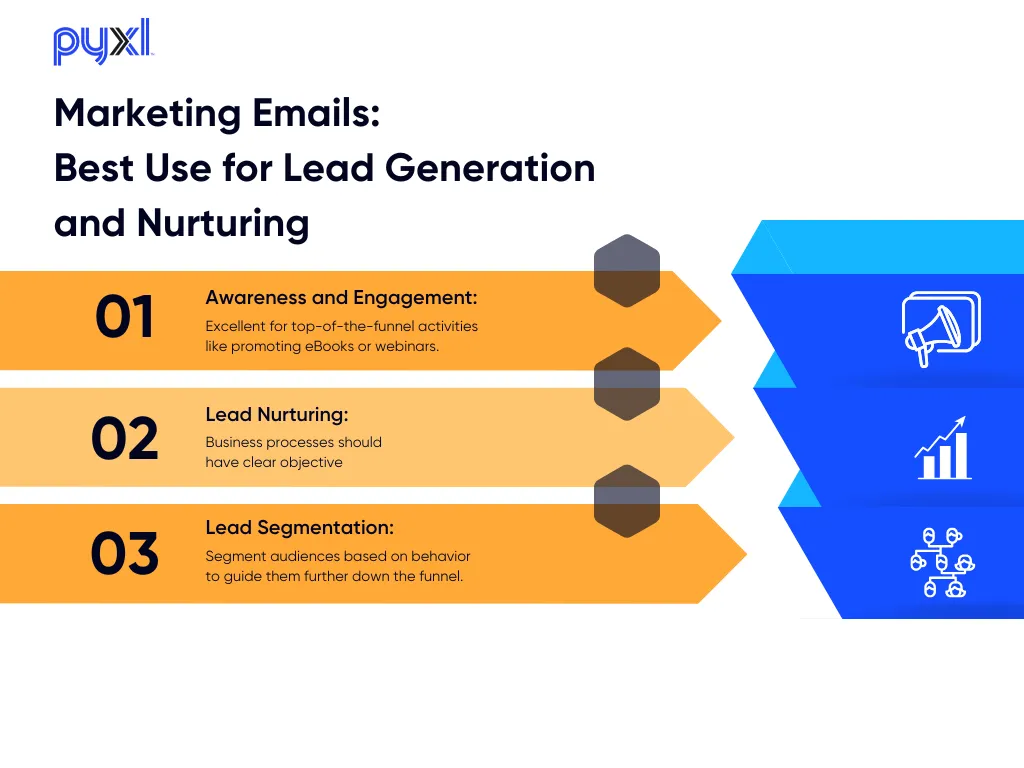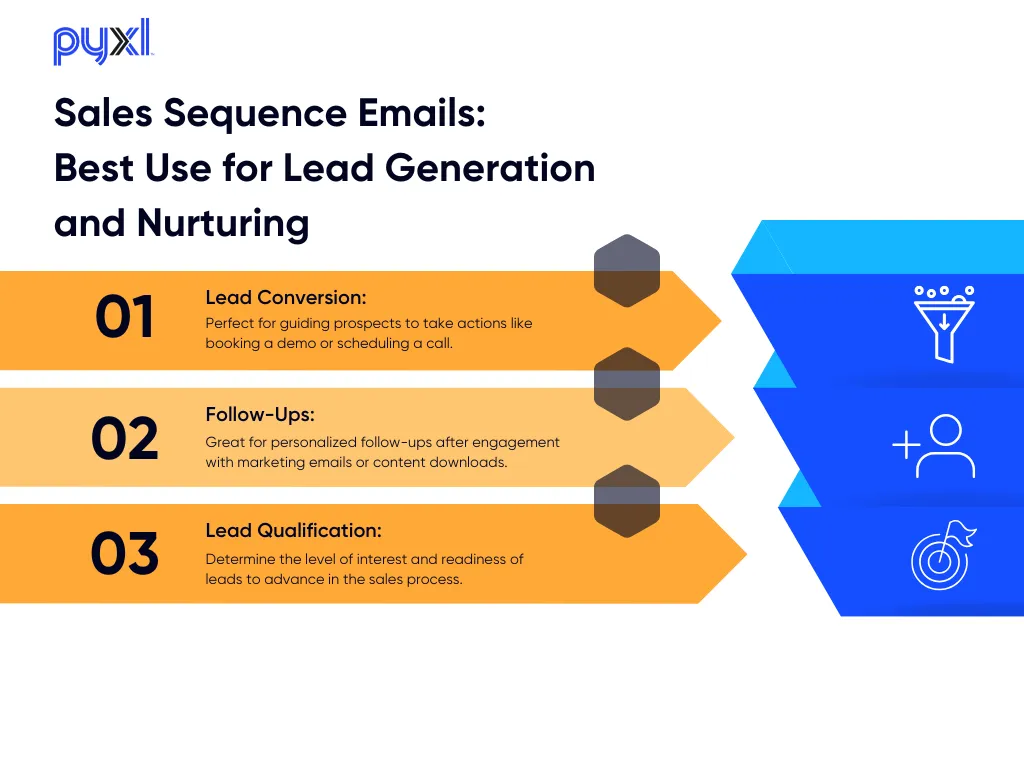Optimize Your Marketing with HubSpot: Understanding Marketing vs. Sales Sequence Emails
There are many reasons why Hubspot should be on your radar. It’s no secret that Hubspot is continuing to grow as a popular CRM and MAP for businesses, with about 216,840 paying customers in Q1 of 2024.
In the fast-paced world of digital marketing and sales, there’s a lot to wrap your head around. Effective communication is crucial for building relationships and driving conversions. That’s where Hubspot comes in.
By integrating Hubspot into your sales and marketing programs, your business can streamline operations and have access to essential Hubspot services.
With HubSpot’s powerful email tools, you can leverage both marketing emails and sales sequence emails to engage their audiences. However, understanding the differences between these two types of emails is essential for optimizing lead generation and nurturing strategies. Each serves distinct purposes, caters to different stages of the buyer’s journey, and impacts customer engagement differently.
Half of marketers say that email marketing is their most impactful channel, so by mastering these email types, organizations can improve their outreach effectiveness, increase lead conversion rates, and ultimately foster stronger customer relationships. In this post, we’ll explore the pros and cons of each type of email, their best use cases, and how to integrate them into a cohesive strategy.
As we explore the key differences, you’ll notice that the types of emails recommended highly depend on the intended use, functionality, and how they are delivered.
What are Marketing Emails?
Marketing emails are designed for broader communication to larger lists of contacts. They are designed to be visually engaging , sent through HubSpot’s marketing automation tools. They engage large lists of contacts and typically include newsletters, promotions, or product announcements.
Pros:
- Scalability: Ideal for mass communication, reaching large audiences quickly.
- Automation: Easily integrated into workflows for drip campaigns and lead nurturing.
- Personalization and Segmentation: Allows for targeted messaging based on lead behavior and demographics.
- Design Flexibility: Enhanced design capabilities with templates, images, and branding options.
- Detailed Analytics: Offers insights into open rates, click-through rates, and engagement, helping to assess campaign performance.
Cons:
- Deliverability Risks: Higher chance of being marked as spam due to bulk sending.
- Lower Personalization: While fields can be personalized, they may feel more generic compared to one-to-one emails.
- Regulatory Compliance: Requires explicit opt-ins and adherence to regulations like GDPR and CAN-SPAM.

What are Sales Sequence Emails?
Sales sequence emails are tailored for personalized, one-to-one communication closely tied to the sales process. These emails are often sent through HubSpot’s CRM as part of an automated sequence to encourage specific actions, like booking a meeting or following up after initial contact.
Pros:
- Personalization: Highly tailored with the ability to include specific contact information and personalization tokens, making them feel more authentic.
- Automation with Flexibility: Sequences adapt based on recipient behavior, pausing when prospects engage.
- Integration with CRM: Deeply integrated with HubSpot CRM, enabling follow-up actions based on interactions.
- Higher Deliverability: Better deliverability rates as they appear as personal emails from sales representatives.
Cons:
- Volume Limitations: Designed for smaller, targeted groups, not for mass campaigns.
- Design Limitations: Primarily text-based, focusing on communication over heavy visuals.
- Sales-Driven: More effective for mid-to-late funnel activities rather than broad awareness.

Understanding the strengths and limitations of sales sequence emails sets the stage for effectively using them in your lead generation strategy. To fully leverage the potential of these two email types, it’s important to know how to utilize them in a way that complements each other throughout the buyer’s journey.
How to Use Marketing and Sales Sequence Emails for Lead Generation and Nurturing
To maximize effectiveness, it’s crucial to understand how to strategically employ both marketing and sales sequence emails.
- Marketing Emails: Best for the top and middle of the funnel, these emails generate interest and engage a broad audience. This approach is best for lead generation when you need to reach a larger group and build awareness through informative content. Use them to nurture leads over time and segment based on engagement levels.
- Sales Sequence Emails: Ideal for targeted, personalized follow-ups aimed at converting nurtured leads into sales opportunities. You should use them once you have identified and qualified leads through their interactions with marketing content. Sequences work well for nurturing smaller groups of leads or individual prospects, guiding them to take a specific action that moves them further along in the sales process.
The key lies in integrating these approaches to maximize their effectiveness. A combined strategy not only enhances engagement at every stage of the funnel but also ensures that your communications are aligned with the needs and readiness of your leads.
A Combined Strategy for Success
Integrating both email types creates a powerful strategy for lead generation and nurturing. Here’s your step-by-step guide to ace this approach:
- Initial Engagement: Use marketing emails to attract new leads through content offers and newsletters.
- Lead Scoring: Segment leads based on engagement levels and assign scores to identify high-interest prospects.
- Personalized Follow-Up: For high-scoring leads, initiate a sales sequence to provide tailored touchpoints emphasizing their needs.
- Nurturing: Continue using marketing emails for leads not ready to convert while applying sales sequences for those closer to making a decision.
- Conversion: Focus sales sequences on converting qualified leads by encouraging specific actions like scheduling a call or signing up for a demo.
This combined approach allows you to use marketing emails for broad engagement and lead nurturing, while sales sequences can be leveraged to close the deal with personalized, targeted communication.
Bringing it all Together
In today’s competitive landscape, harnessing the right tools for effective communication is vital for businesses looking to thrive. Understanding the differences between HubSpot’s emails allows organizations to tailor their approaches to lead engagement strategically. By employing a combined strategy that utilizes both email types, businesses can maximize their outreach efforts—generating interest and nurturing leads more effectively. This holistic approach not only enhances customer relationships but also drives conversions, ultimately contributing to business growth.
Ready to optimize your brand, marketing, and strategies? Pyxl can help! With HubSpot, and Hubspot emails, offering so many amazing features to help your business grow, it can be hard to know where to start. That’s where we come in to help you by providing HubSpot services, implementation, and an onboarding checklist to help drive results and growth for your business.
Contact us today to learn how we can help!
Updated: Dec 06, 2024
 Erin Murray
Erin Murray Kati Terzinski
Kati Terzinski